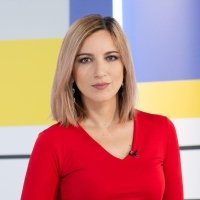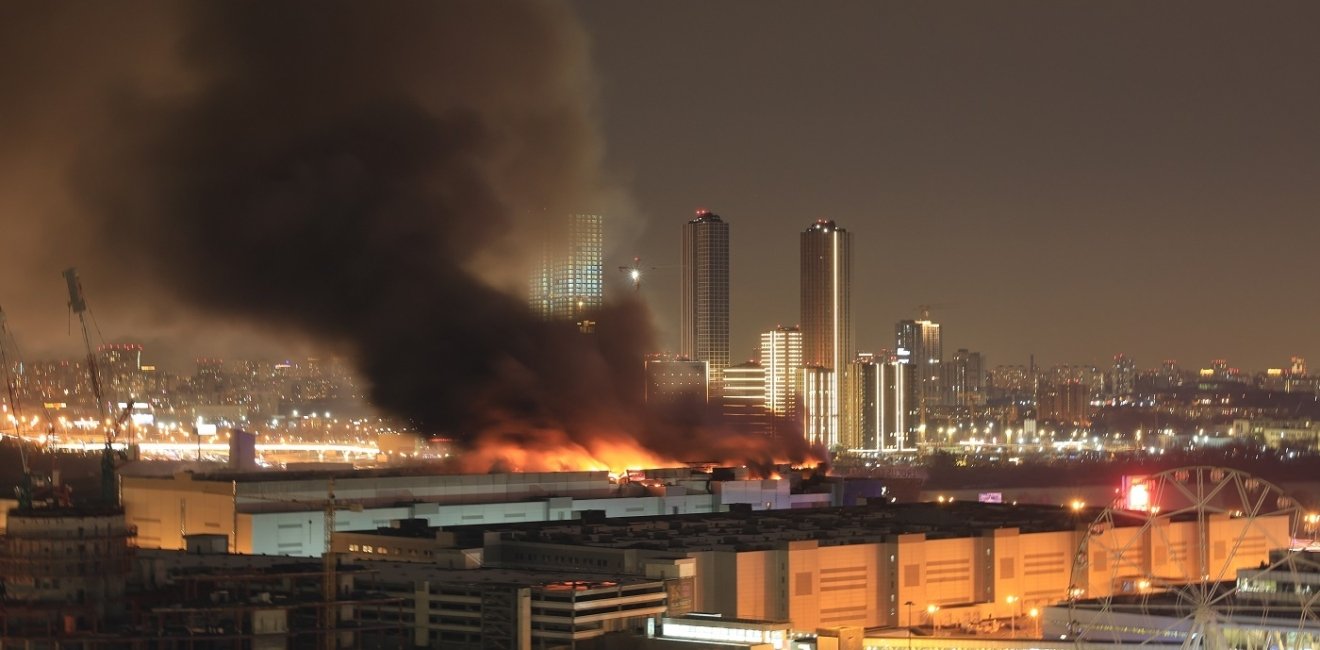
A blog of the Kennan Institute
Vladimir Putin was once famous for bringing stability to Russia. After the economic difficulties of the early years of the former socialist republic’s independence, the majority’s standard of living began to change for the better. Pay increased. People could afford to send their children to decent schools, perhaps could vacation in Turkey or Egypt. That was a time of comfort and safety. By the end of the 2000s a middle class had emerged that saw real prospects for European-style well-being.
Those times, in hindsight, increasingly look like an illusion. Russia is involved in a war of its own making, and isolation from the West is palpable in the population’s lifestyles. Even personal safety cannot be taken for granted. Last March Russians were shocked to face a full-fledged terror attack on a concert venue near Moscow. Just a few days ago, terrorists struck churches, a synagogue, and a police station in Dagestan, a mostly Muslim region in southern Russia. Twenty people died in the attacks, an Eastern Orthodox priest among them.
Today, in 2024, neither stability nor the rights of citizens are guaranteed. These changes have accreted gradually under Putin, step by step moving Russia toward a KGB officer’s concept of the social contract between state and people, and even of the role of the state itself.
Return to the Past?
The decision to go to war against a sovereign neighbor dealt a fatal blow to the fragile social structure that formed in earlier days under Putin. Today, it is as if Russia has stepped into the past. A counterterrorism regime has been introduced in the North Caucasus. An ancient synagogue, a meeting place for the ancient Jewish community of Derbent, in southern Russia’s Dagestan, burned down completely.
Experts call the Islamic State group the most likely organizer of the June 23 terrorist attacks on Makhachkala and Derbent, the two largest cities in Dagestan. Sources with the Russian state media agency TASS confirm it. According to them, those who attacked Derbent and Makhachkala are supporters of an international Islamist terrorist organization, and some of the militants were listed as having connections in Wahhabi circles. Channels associated with the Islamic State praised the “brothers” from the Caucasus. In a statement, Vilayat Khorasan, the group’s Afghan cell, said "our brothers from the Caucasus made it known that they are still strong, they showed what they are capable of." The same group, Vilayat Khorasan, took responsibility for the attack on Crocus City Hall near Moscow in March 2024.
The terrorist attack in Crocus, which took the lives of 145 innocent people, also seems like something from the past. Vladimir Putin came to power twenty-four years ago after explosions in residential buildings in Russian cities. The promise to eliminate the bandits and lever the strong fist of a former KGB officer instilled hope in the frightened population. After several terrible terrorist attacks, some quiet indeed came. But now it’s over.
Fanatics Right Under Their Noses
The unavoidable fact is that the entire system of power in Russia is busy with the war with Ukraine and the West, with ferreting out “foreign agents” and silencing the fifth column. How did the authorities allow Crocus to happen despite American intelligence agencies providing Moscow with advance warning of danger? The answer is simple: the official bodies were concentrated on searching for terrorists among supporters of the opposition leader Alexei Navalny and writers like Boris Akunin. They were looking for spies and found Evan Gershkovich, a Wall Street Journal reporter, who was just doing his job in Russia. That is why they did not notice the cell of fanatics under their noses this time.
Among those attacking Makhachkala and Derbent were two sons of the head of Sergokalinsky district in Dagestan. After the tragedy, the long-standing head of the district was detained and expelled from the United Russia party. Yes, he was a member of the ruling party. Subsequently, during interrogation, he admitted that he knew about the views of his children.
Exactly a year earlier, on June 23, 2023, Rostov-on-Don, a Russian city of one million people. was captured by the Wagner group, and again it came as a surprise to Vladimir Putin. That action and the march on Moscow led by Yevgeny Prigozhin composed a picture entirely distinct from Putin’s much-touted emphasis on “stability.”
Before the march on Moscow, Prigozhin had loudly and often accused the leadership of the Ministry of Defense and the General Staff of incompetence and of pursuing the war in Ukraine for their own advancement. Anyone else using the language Prigozhin used in denouncing Defense leadership would first have been designated foreign agents, then extremists and terrorists, and finally would have been sent to prison for twenty years. But the Kremlin appeared not to have noticed Prigozhin’s increasingly loud clamor, and the public applauded.
When Prigozhin led the troops to Moscow, the authorities declared an amnesty. State propaganda did not seem surprised by this. Nor was any surprise expressed when Prigozhin’s plane exploded in the sky on August 23. It was an astonishing finale to a personal conflict in which the losing participant had to die, just as in the 1990s.
Protecting Putin’s Image
After the terrorist attacks in Dagestan, Putin remained silent. No address to citizens is planned. In place of Putin, Kremlin spokesman Dmitry Peskov issued condolences. This is Putin’s signature style: he tries not to appear on the tragic pages of Russian history. He pays no visits to memorials or cemeteries, does not attend funeral services or observe anniversaries unless they mark victorious Russia. He has no communication with the victims' relatives.
He doesn’t want such a picture on TV so that viewers don’t build a chain of associations: terrorists -> tears -> pain -> fear -> Putin. Moreover, as in the case of the attack on the Crocus concert hall, the authorities sought to shield Putin from accusations by confecting awkward theories about the connection between the offense in Dagestan and Ukraine, the United States, NATO, et al.
“The tragedy in Dagestan is an absolutely cynical and carefully planned provocation from abroad,” says a third person in the Russian state apparatus, Chair of the Russian Federation Council Valentina Matvienko, without blinking an eye. Anonymous Telegram channels allow themselves even more: “The West has declared a war of terrorism on Russia!” says the popular channel Arrow of Kazbek. If the anger of society can be directed toward Moscow’s habitual enemies, that might deflect suspicion from the Kremlin. The expectation is that the average person, whether out of habit, laziness, or fear, will not ask unnecessary questions.
A Tattered “Consolidation” of Society
Dmitry Peskov claims that the government is not afraid of rising crime. “Russia is different now, society is absolutely consolidated,” he says, and it looks like he’s encouraging himself. But if Russia is so consolidated, then why are the sons of a United Russia official in Dagestan holding the capital of the region under control for several hours? Why, judging from numerous reports, were so many participants in the attack on the lists of extremists but encountered no problems? Why, in the same Dagestan, did an antisemitic crowd a few months earlier storm the airport where a flight from Tel Aviv was arriving? Is this what consolidation looks like?
Any connection between the murdered priest in Derbent and “the long arms of the West” seems dubious, even to the most devoted supporters of the regime. And the more frequently such emergencies occur, the less room there is for Putin to blame “Anglo-Saxons” and Kyiv for the mess that has evolved during his extended presidency.
The opinions expressed in this article are those solely of the author and do not reflect the views of the Kennan Institute
Author


Kennan Institute
After more than 50 years as a vital part of the Wilson Center legacy, the Kennan Institute has become an independent think tank. You can find the current website for the Kennan Institute at kennaninstitute.org. Please look for future announcements about partnership activities between the Wilson Center and the Kennan Institute at Wilson Center Press Room. The Kennan Institute is the premier US center for advanced research on Eurasia and the oldest and largest regional program at the Woodrow Wilson International Center for Scholars. The Kennan Institute is committed to improving American understanding of Russia, Ukraine, Central Asia, the South Caucasus, and the surrounding region through research and exchange. Read more

Explore More in The Russia File
Browse The Russia File
Chechnya as a Model of Modern Russia

Russia’s Indigenous Communities and the War in Ukraine

Gas and Power in a Changing US–Russia Relationship

